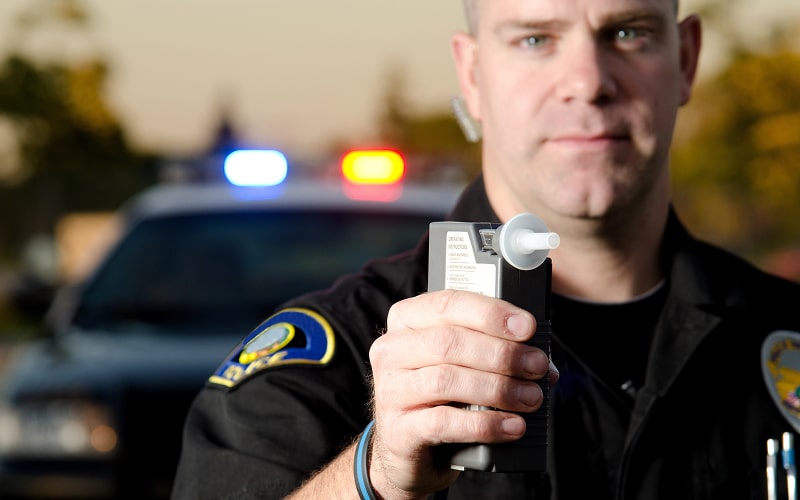A DUI charge in Fairfax County can turn your life upside down. The legal consequences, financial burdens, and potential damage to your reputation make it a serious matter. Many drivers assume that failing a field sobriety test means an automatic conviction, but that’s not true.
Field sobriety tests (FSTs) are not flawless indicators of intoxication. Various factors can affect performance, and failing does not mean you are legally guilty of DUI. This article explores how FSTs work, their voluntary nature in Virginia, and the many reasons why they can be challenged.
Understanding these tests and your rights can significantly affect your case. If you or a loved one has been charged with DUI, knowing what comes next is critical. Learn more about your legal options and how an experienced DUI attorney can help you fight the charges.

Understanding Field Sobriety Tests
Law enforcement officers use field sobriety tests to assess whether a driver is impaired. These tests evaluate a person’s balance, coordination, and ability to follow instructions. The goal is to detect signs of intoxication that might not be obvious at first glance.
However, FSTs are not foolproof. Many factors unrelated to alcohol or drug use can affect a person’s performance. Despite their widespread use, these tests are often unreliable and highly subjective.
The National Highway Traffic Safety Administration (NHTSA) has approved three standardized FSTs. Each test is designed to measure physical and cognitive impairment:
Horizontal Gaze Nystagmus (HGN) Test
- The officer asks the driver to follow an object with their eyes.
- Jerking or involuntary eye movement at certain angles can indicate intoxication.
- Other medical conditions can also cause these eye movements, making the test questionable.
Walk-and-Turn Test
- The driver walks heel-to-toe in a straight line, turns, and returns.
- Officers look for signs like imbalance, stepping off the line, or stopping mid-walk.
- Anxiety, poor footwear, or an uneven surface can lead to failure.
One-Leg Stand Test
- The driver stands on one leg while counting aloud.
- Wobbling, using arms for balance, or putting the foot down may be signs of impairment.
- Age, weight, and medical issues can all affect performance.
These tests are tools for law enforcement, but they are not definitive proof of intoxication. Many sober individuals struggle with them, making it essential to challenge their results when building a defense.
The Voluntary Nature Of Field Sobriety Tests In Virginia
Many drivers assume they must comply when asked to take an FST, but that’s not the case. In Virginia, field sobriety tests are entirely voluntary. Law enforcement officers may make it seem like you have no choice, but you are not legally required to participate.
Unlike chemical tests, which fall under Virginia’s implied consent law, refusing an FST carries no direct penalties. You won’t face additional charges or an automatic license suspension simply for saying no. However, officers may still arrest you if they believe they have other evidence of impairment.
It’s important to understand that these tests are designed to make you fail. Even sober individuals can struggle with balance and coordination under stress. If an officer asks you to perform an FST, you can politely decline without any legal consequences.
The reality is that agreeing to take these tests often gives the prosecution more evidence to use against you. An officer’s subjective observations may be difficult to dispute without video footage. Understanding your rights can help you avoid unnecessary mistakes during a DUI stop.
Factors Affecting Field Sobriety Test Performance
Field sobriety tests assess a driver’s coordination, balance, and ability to follow instructions. Officers use them as evidence of impairment, but these tests are far from foolproof. Many people who are completely sober fail FSTs due to reasons unrelated to alcohol or drugs. Unfortunately, law enforcement often overlooks these factors, leading to wrongful DUI arrests.
Understanding what can negatively impact FST performance is crucial when building a DUI defense. Poor results do not necessarily mean a person was impaired. External conditions, medical issues, and even nervousness can lead to failure. If you failed an FST, examining these contributing factors may help challenge the prosecution’s case against you.
Medical Conditions
Physical and neurological conditions can make it difficult to perform an FST correctly. Officers often assume poor performance equals intoxication, but many health issues can affect balance and coordination.
- Inner ear disorders, vertigo, and other balance-related conditions can cause unsteadiness.
- Neurological disorders such as Parkinson’s disease, multiple sclerosis, or past concussions can impact movement.
- Muscle fatigue, arthritis, and joint pain can make walking heel-to-toe or standing on one leg hard.
Drivers with these conditions may struggle to pass an FST even when completely sober. If medical issues contributed to your poor performance, a DUI attorney can argue that your test results were not reliable.
Age & Physical Limitations
Not everyone has the same level of agility or coordination. Factors like age, weight, and prior injuries can make an FST more difficult.
- Older individuals often have reduced balance, making one-leg stands harder.
- People with previous leg, knee, or back injuries may be unable to complete the walk-and-turn test.
- Excess weight can affect movement and coordination, leading to missteps.
Officers do not always take these factors into account when conducting tests. If you struggled with an FST due to physical limitations, this could be a strong defense in your DUI case.
Environmental Factors
The conditions under which an FST is performed can greatly impact the results. Officers often administer these tests on the roadside, where several elements can interfere.
- Uneven pavement, gravel, or slippery surfaces can cause stumbles.
- Poor lighting at night can make it difficult to see lines or follow visual cues.
- Strong winds or cold weather may cause shaking, affecting test performance.
These external conditions can lead to inaccurate results. If the environment played a role in your FST failure, your attorney can argue that the test was not a fair measure of impairment.
Stress & Anxiety
Getting pulled over by the police is stressful. Anxiety can make even simple tasks feel overwhelming. Many drivers fail FSTs simply because they are nervous, not intoxicated.
- The fear of being arrested can cause shaking or trouble concentrating.
- Nervousness may lead to difficulty following instructions, making it seem like a driver is impaired.
- Pressure to perform well can result in overthinking, which can cause hesitation or missteps.
Police officers are not trained to account for stress-related mistakes. If anxiety played a role in your FST results, this could be an important detail in your defense strategy.
How These Factors Can Strengthen Your Defense
Failing an FST does not mean you were under the influence. Medical conditions, environmental factors, and anxiety can all contribute to poor performance. A skilled DUI attorney can present evidence that these factors, not intoxication, led to the test failure.
If you have been charged with DUI after failing an FST, you have options. Challenging the reliability of these tests can weaken the prosecution’s case and increase your chances of a positive outcome.
Challenging Field Sobriety Test Results In Court
A failed FST does not guarantee a conviction. There are several ways to challenge the validity of these tests in court. An experienced DUI attorney can highlight weaknesses in the officer’s observations and the testing conditions. Below are key defense strategies in defending against FSTs.
Questioning Test Administration
- Officers must follow strict guidelines when conducting FSTs.
- Improper instructions or a failure to demonstrate the test can invalidate results.
- The test may be unreliable if the officer did not account for external factors.
Highlighting Subjectivity
- Officers rely on personal judgment to determine failure.
- Bias and inconsistent training can affect assessments.
- Video evidence can help contradict officer testimony.
Introducing Alternative Explanations
- Non-alcohol-related factors can explain poor performance.
- Proving medical or environmental influences can cast doubt on the results.
- Expert testimony may be used to challenge the prosecution’s claims.
A strong legal defense can weaken the prosecution’s argument and increase the chances of a favorable outcome.
The Role Of Chemical Tests Post-Arrest
While FSTs are voluntary, chemical tests are not. Under Virginia’s implied consent law, drivers must submit to a breath or blood test if arrested. Refusing these tests leads to automatic license suspension and other penalties.
Chemical tests are generally more reliable than FSTs but not infallible. Improper calibration, medical conditions, and officer errors can lead to inaccurate results. A DUI defense attorney can analyze these issues to challenge the prosecution’s case.
Understanding the difference between voluntary and mandatory testing is crucial. FSTs can be refused without legal consequences, but chemical test refusal carries penalties. Knowing your rights can prevent unnecessary legal complications.
What Failing A Field Sobriety Test Means For You
Failing an FST does not mean you are guilty of DUI. These tests are subjective, unreliable, and influenced by many factors. Prosecutors must prove intoxication beyond a reasonable doubt.
FST results alone are rarely enough to secure a conviction. Additional evidence, such as chemical test results and officer observations, is required. Without strong proof, a failed FST does not automatically lead to a guilty verdict.
If you’ve been charged with DUI based on FST results, an attorney can challenge the evidence. Legal defenses can cast doubt on the prosecution’s case, improving your chances of avoiding conviction.
How Fairfax County Criminal Attorneys Can Defend You

Fairfax County Criminal Attorneys has extensive experience defending clients against DUI charges. Our attorneys understand Virginia DUI laws and how to challenge field sobriety test results.
Why choose us?
- Aggressive Defense Strategies: We challenge every piece of evidence against you.
- Personalized Legal Support: We tailor our approach to your unique situation.
- Proven Track Record: We have successfully defended numerous DUI clients in Virginia.
A DUI charge is serious, but you don’t have to face it alone. Contact us today and schedule a consultation.
Failing a field sobriety test does not mean you are guilty of DUI. These tests are flawed, subjective, and influenced by many external factors. Understanding your rights and seeking legal representation can make all the difference. Don’t wait to take action if you or a loved one is facing a DUI charge. Contact Fairfax County Criminal Attorneys today for the defense you deserve.




